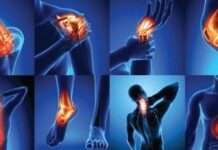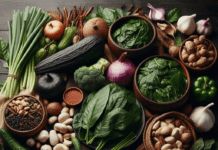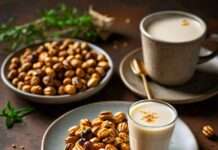
Getting a case of acid reflux (heartburn) once in a while isn't unusual, but some people suffer from burning discomfort, bloating and belching almost every time they eat.
Normally, the esophageal sphincter (a muscular tube that lets food pass into the stomach and then cinches shut to block it from coming back up) protects the esophagus from stomach acid. However, if the sphincter relaxes, food can push upward through the loosened opening and cause acid reflux.
In a study titled ‘The role of diet in the development and management of gastroesophageal reflux disease’, published in Journal of Thoracic Disease, the authors, Carolyn Newberry and Kristle Lynch said, acid reflux is characterised by the presence of burning mid-sternal chest pain, regurgitation of fluid or food, or development of esophageal inflammation that may lead to swallowing dysfunction. Additionally, patients may experience extraesophageal manifestations including cough, bronchospasms, and hoarseness. Its incidence is high in the general population, estimated to affect up to a third of people worldwide.
Unfortunately, certain foods trigger your stomach to produce excess acid. Other foods slow the emptying of your stomach, which also triggers reflux symptoms. Fortunately, modifying your eating habits plays a significant role in controlling stomach acid production and acid reflux symptoms. Diet and lifestyle modifications are often one of the first lines of defense in treating acid reflux.

The worst foods for acid reflux include:
Alcohol: Drinking alcohol, especially red wine in large quantities can increase the risk of acid reflux. Stacy Cavagnaro, a registered dietitian with Cleveland Clinic’s Centre for Human Nutrition says alcohol is another food that relaxes the lower esophageal sphincter, making it more likely for acid to flow into the esophagus. Drinking alcohol both stimulates stomach acid and also relaxes the esophageal sphincter.
Allium vegetables (onions, garlic, shallots): Alliums contain fermentable fibers, meaning they react with gut bacteria during the digestion process to produce more stomach acids. Bonnie Taub-Dix, a medical assistant and a nutritionist in private practice in New York City says, “Some people with heartburn do not do well with either garlic or onion.
“Keep a food log to help you track the foods that are your heartburn offenders, and try to develop a list of safe foods”. Foods like broiled chicken, baked sweet potatoes, toast, or cottage cheese, she says, are on the safe side of the heartburn food list.
Caffeine: Caffeine causes an increase in stomach acid production. Caffeinated beverages, including coffee, tea, and soda, can aggravate acid reflux symptoms. Instead of cutting out your favourite beverages, try decaffeinated versions instead.
Brooke Ziggler, a registered dietitian nutritionist said, “Caffeinated food and beverages can increase the acidity of gastric secretions. In order to decrease the acidity of these secretions, it is best to minimise the amount of caffeine in your diet.”
Carbonated beverages: The bubbles (carbon dioxide) in carbonated drinks increase gastric pressure and can cause the lower esophageal sphincter (LES) to stay open.
A Board-Certified Gastroenterologist at Rivas Digestive Centre in Hollywood, Florida, Dr John M. Rivas noted that “It’s not just your food choices that may trigger your acid reflux. Certain beverages may cause abdominal pain and discomfort too.
“The carbonation in soft drinks, seltzer water, and beer causes the acid from your stomach to bubble up into your throat, creating the uncomfortable burning sensation. Cutting carbonated drinks from your diet may help control your symptoms.”
Citrus fruits: While fruits and vegetables are a key part of a healthy, well-balanced diet, avoid high-acid fruits and vegetables, which can exacerbate your symptoms. The acid in lemons, limes and oranges produce more stomach acid that can lead to reflux.
Steven Lamm, a medical doctor at NYU School of Medicine in New York stated that “Many people find that eating citrus fruits, such as oranges, grapefruits, lemons, limes, and pineapples, can trigger heartburn symptoms. That's especially true if you eat citrus fruits on an empty stomach. The problem is that citrus fruits are highly acidic, and heartburn symptoms can stem from having too much acid in your stomach — think of these foods as fueling the fire. To avoid heartburn, skip citrus fruit juice, too.”
Chocolate: Chocolate is a common trigger for acid reflux. Methylxanthine, an ingredient in chocolate, has been shown to relax the smooth muscle of your lower esophageal sphincter (LES), which contributes to reflux symptoms.
William Chey, a medical doctor, gastroenterologist and professor of medicine and nutrition sciences said: “Traditionally, chocolate has been viewed as a potential trigger for gut symptoms like pain, cramping, bloating, gas and diarrhea. This is because chocolate, particularly milk chocolate, contains a lot of sugar, including lactose, milk proteins and fat – all of which can cause symptoms of acid reflux.”
Foods to consider Include
Since you’ll probably need to eliminate certain items from your diet to reduce symptoms of acid reflux, it may be helpful to know about alternative foods that are less likely to cause problems.
The following replacements may help you avoid symptoms.
Milk products: Instead of whole milk and full-fat dairy products, try reduced-fat, low-fat, or fat-free milk, yogurt, cheese, or ice cream.
A leading acid reflux expert and the author of Dropping Acid: “The Reflux Diet Cookbook and Cure”, Dr Jamie Koufman, MD, explained that the reason why milk can offer immediate relief for heartburn is that it has a high pH level, which works to balance out the acidity of heartburn-causing foods. (Foods and drinks with a low pH are acidic while ones with a high pH are alkaline.) She revealed that the calcium and protein in milk are also reasons why it can help. “The high calcium content in milk can help because this mineral tightens the lower esophageal sphincter, preventing backflow of stomach acid,” she said.
Alternatively, you can try nondairy options like soy or almond milk, or nondairy ice cream alternatives.
Fruits: Instead of citrus fruits like oranges, lemons, limes, and grapefruit, try any other fresh, frozen, or canned fruit or fruit juice that you can tolerate well.
“For instance, fresh bananas are great for preventing acid reflux, because they contain very little acid. They coat the mucous lining of the esophagus, thus strengthening mucosal defenses against reflux. The fiber in bananas also speeds up the passage of food through the gut, preventing the stasis of food for longer than necessary in the stomach, and thus limiting acid production, while reducing the chances of acid reflux,” says Dr Liji Thomas, a medical doctor specializing in obstetrics and gynaecology in India.
Vegetables: Instead of fried or creamed vegetables, onions, tomatoes and tomato products, or vegetable juices, try a variety of other fresh, frozen, or canned vegetables that are prepared without added fat.
Soups: Instead of creamy or tomato-based soups, try lean broth-based soups or homemade soups made with lean ingredients, including low-fat or fat-free milk instead of cream.
Potatoes and other starches: Instead of french fries, potato chips, risotto, or pasta with creamy or tomato-based sauces, try baked, boiled, or mashed potatoes, plain pasta or rice, or pasta with a low-fat milk-based sauce.
When to Talk to Your Doctor about Acid Reflux
It's a good idea to speak with your doctor if the best foods for acid reflux do not relieve your symptoms, Dr Khaitan says. Other options can include lifestyle changes, medications to block acid and surgical procedures on the esophagus sphincter.
It is important to make a doctor's appointment if you have heartburn or acid reflux that is severe or frequent, Dr Khaitan adds. Chronic acid reflux is known as gastroesophageal reflux disease (GERD) and can lead to esophageal cancer.













